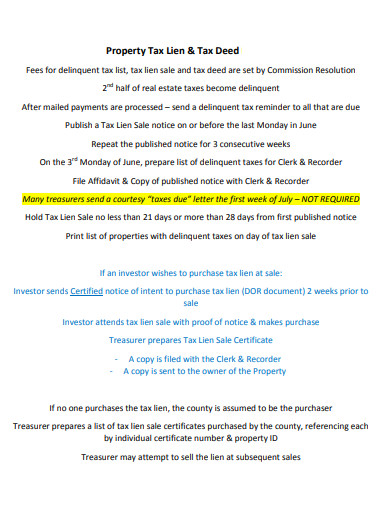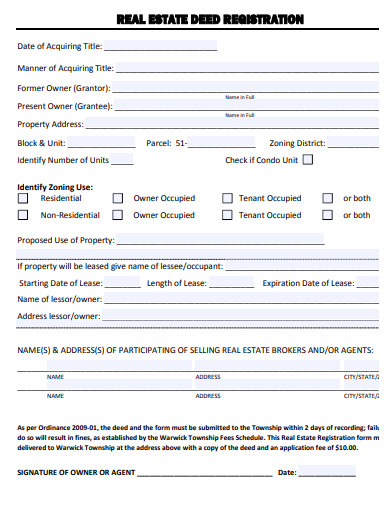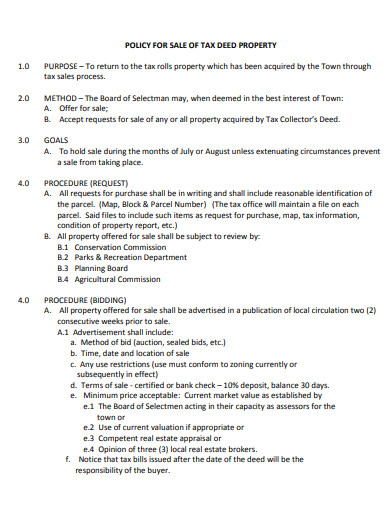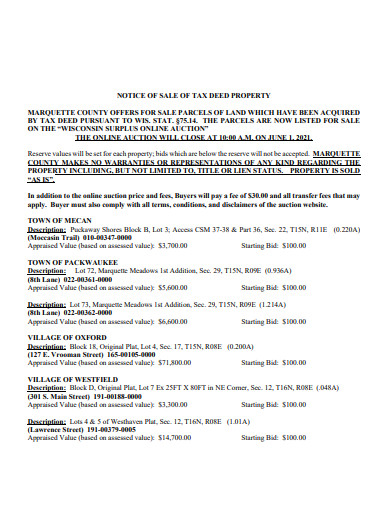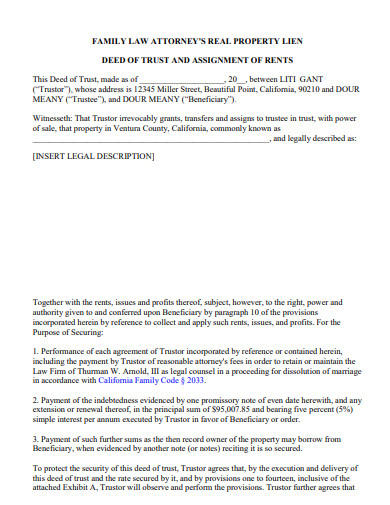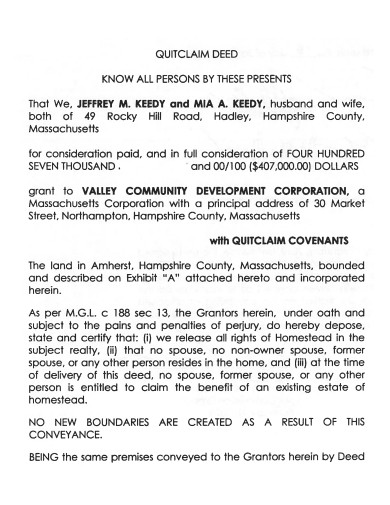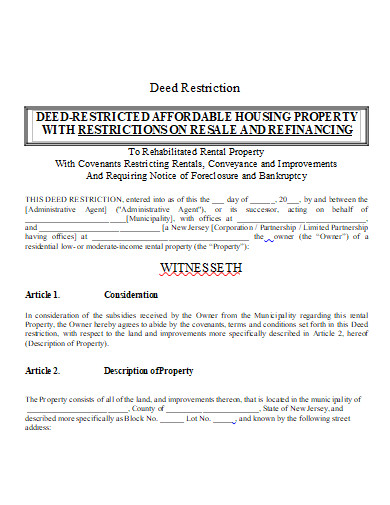Deeds must have essential details in order to be legally legitimate. Each state will have its own set of rules about what should be included in a deed. The sort of property being transferred will determine what other information is necessary. A house in a subdivision, for example, will require a plot description and subdivision details. Remember that a deed must be written, and both the grantor and the grantee must be lawfully qualified and capable of partaking in the real estate transaction.
10+ Property Deed Samples
Property deeds are official contracts that transfer title to real estate from a grantor (seller) to a grantee (purchaser) (buyer). Land or everything related to it, such as buildings or roads, is referred to as real property. A deed must include the grantor and grantee’s names, as well as an appropriate description of the property, in order to be legally enforceable. Deeds are divided into several kinds, including warranty, quitclaim, and special purpose. This article will explain what deeds are, what must be contained in a deed to make it legally enforceable, and the many forms of deeds used in real estate transactions.
1. Property Deed

2. Property Trust Deed
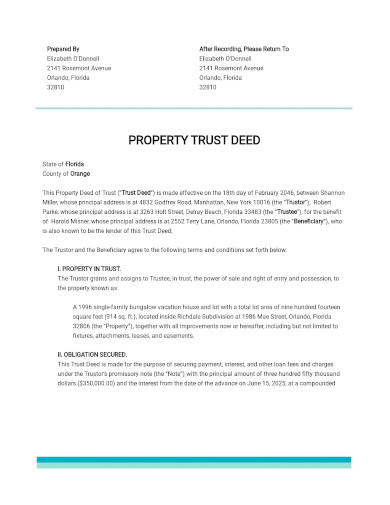
3. Movable Property Deed
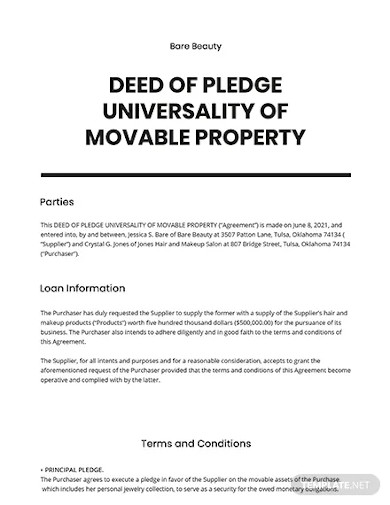
4. Real Estate Property Deed
5. Property Tax Lien and Tax Deed
6. Real Estate Property Deed Registration
7. Policy for Sale of Tax Deed Property
8. Notice of Sale of Tax Deed Property
9. Property Rent Deed
10. Site Control Property Deed
11. Printable Property Deed
Essential Deed Elements
- They must be written down. While most deeds are performed on printed forms, there is no legal need that any particular form be used as long as all of the necessary elements are included.
- The grantor must be legally capable of transferring the property, and the grantee must be legally capable of receiving the property grant. A grantor is considered competent if he or she is capable of making a legally binding contract.
- The grantor and grantee must be recognized in a way that can be traced back to them.
- A thorough description of the property is required.
- The use of operational conveyance terms is required. The necessary legal text that actually transfers the property is included in all standard form deeds.
- If the property is owned by more than one person, the grantor or grantors must seal the deed.
- The grantee or someone working on the grantee’s behalf must receive the deed legally.
- The grantee must agree to the deed. Deeds are usually accepted by the grantee, although in some cases, the grantee may refuse delivery of the deed.
Real estate was traditionally transferred by a ceremonial ritual known as “livery of seisin,” in which the person transferring the land gave a twig or clod of turf from the property to the person that took delivery of the land. Although the livery of seisin officially transferred the title to the property, it was often supplemented by a verbal or written statement. Today, a paper deed is used to transfer ownership of real estate.
FAQs
What is a special warranty deed?
A grant deed, also known as a restricted warranty deed or a special warranty deed, provides the buyer with less protection than a general warranty deed but more protection than a quit claim deed. A grant deed usually includes two basic warranties: that the seller has not sold or transferred the property to anyone else, and that there are no title difficulties that the seller is aware of during the time they have held title to the property.
What is a quitclaim deed?
A quitclaim deed provides the buyer with the least amount of protection. This deed is known as a non-warranty deed in some states. A quitclaim deed simply transfers the grantor’s interest in the property to the grantee without making any promises or warranties about the validity of the title.
A deed is a legal document that is used to transfer property ownership. A deed must have certain basic properties in order to be legally enforceable. The grantee is protected in different ways by different deeds, while the grantor’s obligations are determined by the deed’s form. Because deeds are important legal documents that affect property interests and rights, any transaction involving them, such as a real estate purchase closing, should be addressed with a knowledgeable real estate attorney.
Related Posts
Sample Business Card Templates
Sample Cashier Job Descriptions
Questionnaire Samples
FREE 10+ Sample HR Resource Templates in PDF
FREE 10+ HR Consulting Business Plan Samples in MS Word | Google Docs | Pages | PDF
FREE 49+ Sample Job Descriptions in PDF | MS Word
FREE 16+ Nonprofit Budget Samples in PDF | MS Word | Excel | Google Docs | Google Sheets | Numbers | Pages
FREE 13+ Academic Calendar Templates in Google Docs | MS Word | Pages | PDF
FREE 10+ How to Create an Executive Summary Samples in Google Docs | MS Word | Pages | PDF
FREE 23+ Sample Event Calendar Templates in PDF | MS Word | Google Docs | Apple Pages
Company Profile Samples
FREE 10+ Leadership Report Samples [ Development, Training, Camp ]
FREE 24+ Sample Payment Schedules in PDF | MS Word
FREE 10+ Return to Work Action Plan Samples in PDF | DOC
Autobiography Samples & Templates


